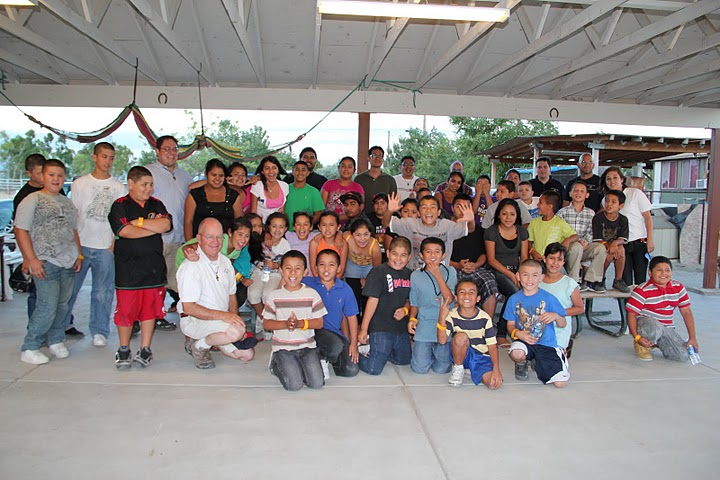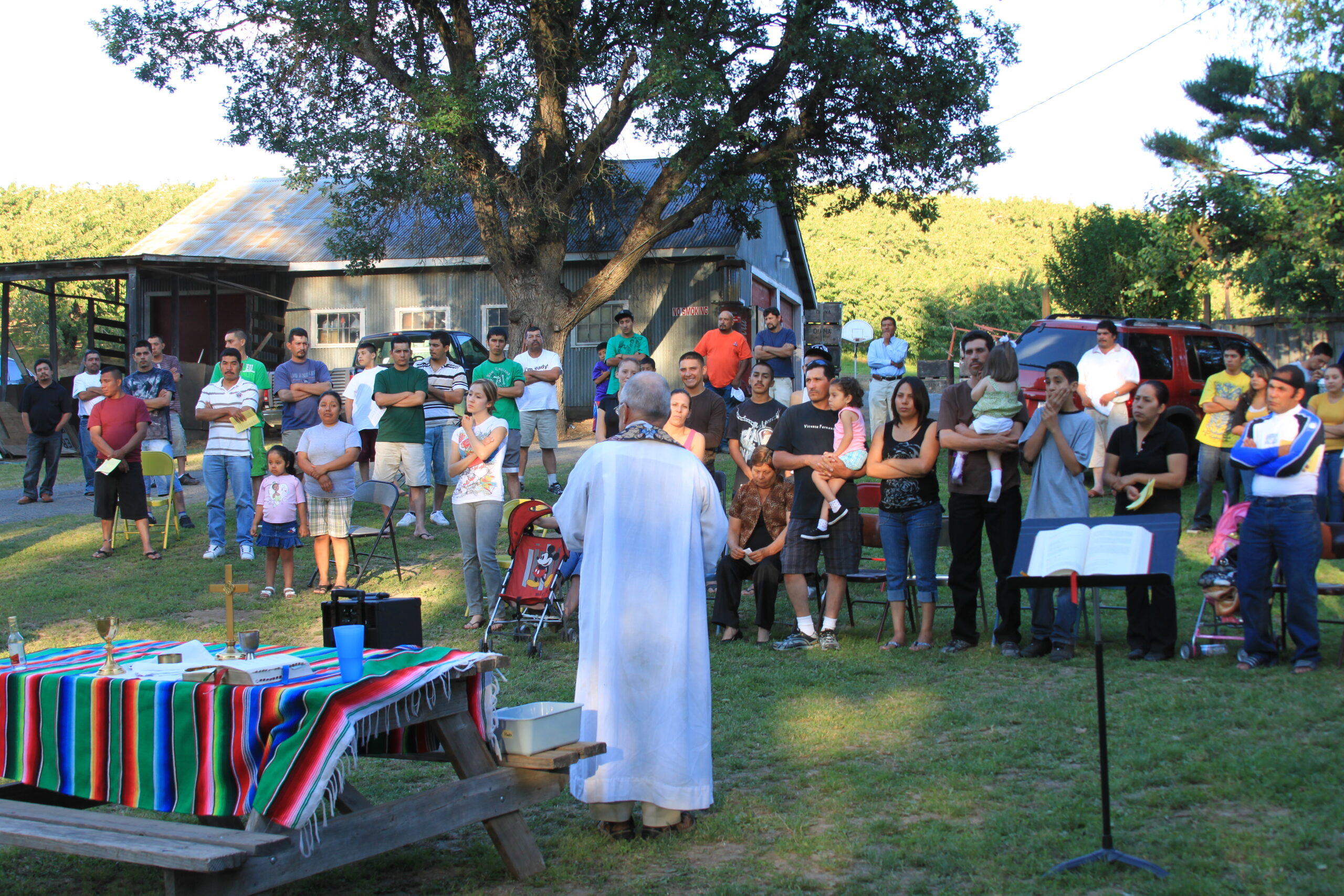Sacraments for the poor / Los Sacramentos para los Pobres
Los Sacramentos para los Pobres
El Papa Francisco escribe: “La inmensa mayoría de los pobres tiene una especial apertura a la fe; necesitan a Dios y no podemos dejar de ofrecerles su amistad, su bendición, su Palabra, la celebración de los Sacramentos y la propuesta de un camino de crecimiento y de maduración en la fe.” (EG 200)
Una catequista preguntó: “¿Estamos exigiendo demasiado a los niños y a sus padres para recibir la Primera Comunión?” Su pregunta es especialmente apropiada cuando consideramos que el Papa Francisco expresa su preocupación por el hecho que existen en prácticas comunes de muchas iglesias que efectivamente niegan los sacramentos a personas pobres y marginadas de la Iglesia. Antes de responder a la pregunta de la catequista, debemos considerar del Código de Derecho Canónico, 213: “Lo fieles tienen derecho a recibir de los Pastores sagrados la ayuda de los bienes espirituales de la Iglesia, principalmente la palabra de Dios y los sacramentos.”
Es un “derecho”, no un privilegio, recibir los sacramentos. Este es un derecho arraigado en el bautismo. No es un privilegio concedido por las autoridades de la Iglesia, sino un reclamo arraigado en la acción de Cristo. En el antiguo Código de Derecho Canónico, este se presentaba como el único “derecho” declarado directamente a los laicos. El Concilio Vaticano II pidió que estos bienes (palabra y sacramento) estuvieran disponibles en abundancia.
La mayoría de las personas con las que he trabajado durante los últimos veinticinco años tienen dificultades para participar en programas que duran de varios meses a dos años. Sus vidas son inestables debido a la pobreza, la lucha por sobrevivir como inmigrantes en este país y la inseguridad de su estatus migratorio. Los programas alternativos son útiles, pero exigen mucho que los catequistas sean flexibles con las personas a las que sirven.
Ningún programa satisface las necesidades de todos
Cada parroquia necesita alternativas para aquellos que no pueden participar en los programas parroquiales ordinarios. Ningún programa atiende las necesidades de todos los católicos dentro de una parroquia. Incluso los programas más maravillosos no pueden ser atendidos por un número significativo de personas. Flexibilidad es necesaria para responder a toda la inestabilidad en la vida del Pueblo de Dios.
(Si tienes observaciones o preguntas para Padre Migrante, envían las a padremigrante@gmail.com)
Sacraments for the poor
Pope Francis writes: “The great majority of the poor have a special openness to the faith; they need God and we must not fail to offer them his friendship, his blessing, his word, the celebration of the sacraments and a journey of growth and maturity in the faith.” (EG 200)
A catechist asked, “Are we demanding too much of children and their parents for reception of First Communion?” Her question is especially appropriate when we consider Pope Francis expressing concern that there are common practices in many churches that effectively deny the sacraments to people who are poor and on the fringes of the Church. Before answering the catechist’s question, we should consider Canon 213 of the Code of Canon Law: “The Christian faithful have the right to receive assistance from the sacred pastors out of the spiritual goods of the Church, especially the word of God and the sacraments.”
It is a “right”, not a privilege to receive the sacraments. This is a right rooted in Baptism. It is not a privilege granted by Church authorities, but a claim rooted in the action of Christ. In the former code of Canon law, this was presented as the only “right” directly stated for laypersons. The Second Vatican Council called for these goods (word and sacrament) to be made available in abundance.
The majority of the people with whom I have worked for the past twenty-five years have difficulty participating in programs that last several months to two years. Their lives are unstable on account of poverty, struggling to survive as immigrants in this country, and the insecurity of their immigration status. Alternative programs are helpful, but they are very demanding of the catechists to be flexible with the people whom they serve.
No program serves the needs of all
Every parish needs alternatives for those unable to take part in the ordinary parish programs. No program serves the needs of all Catholics within a given parish. Even the most wonderful of programs are unable to be attended by significant numbers of people. Flexibility is necessary to respond to all of the instability in the lives of the People of God.
(If you want Padre Migrante to respond to your concerns or questions, write to: padremigrante@gmail.com)
Oh Jesús, tú nos llamas: “Síganme”. Bendice, Señor, a todos los que acogen tu llamado. Puede que el camino no sea fácil, pero tenemos la confianza de que todo es posible si caminamos contigo. Que este viaje nos abra los ojos a las maravillas de tu amor por nosotros. Oramos por toda tu gente, por todos los creyentes e incrédulos, por los líderes y seguidores. Oramos por la sanación, el perdón, la compasión, la justicia y la paz. Oramos para que, al seguirte, nosotros también podamos ser pescadores de hombres. Bendícenos en nuestro viaje.
O Jesus, you call us, “Come after me.” Bless, O Lord, all who welcome your call. The path may not be easy, but we have confidence that all things are possible if we walk with you. May this journey, open our eyes to the wonders of your love for us. We pray for all your people, for all believers and unbelievers, for leaders and followers. We pray for healing, for forgiveness, for compassion, for justice, for peace. We pray that as we follow you, we too can be fishers of men. Bless us on our journey.



